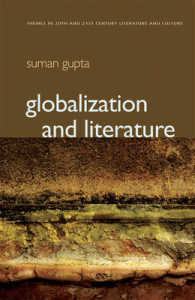- ホーム
- > 洋書
- > 英文書
- > Philosophy
基本説明
Shows how Plato's Socrates uses fallacy, irony, ambiguity and other rhetorical strategies to advance the Greek maxim to 'know thyself', as a means of caring for the soul.
Full Description
This book develops a new account of Socratic method, based on a psychological model of Plato's dramatic depiction of Socrates' character and conduct. Socratic method is seen as a blend of three types of philosophical discourse: refutation, truth-seeking, and persuasion. Cain focuses on the persuasive features of the method since, in her view, it is this aspect of Socrates' method that best explains the content and the value of the dialectical arguments. Emphasizing the persuasive aspect of Socratic method helps us uncover the operative standards of dialectical argumentation in fifth-century Athens. Cain considers both the sophistic style of rhetoric and contentious debate in Socrates' time, and Aristotle's perspective on the techniques of argument and their purposes. An informal, pragmatic analysis of argumentation appropriate to the dialectical context is developed. We see that Socrates uses ambiguity and other strategic fallacies with purposeful play, and for moral ends. Taking specific examples of refutations from Plato's dialogues, Cain links the interlocutors' characters and situations with the dialectical argument that Socrates constructs to refute them.
The merit of this interpretation is that it gives broad range, depth, and balance to Socrates' argumentative style; it also maintains a keen sensitivity to the interlocutors' emotional reactions, moral values, and attitudes. The book concludes with a discussion of the overall value, purpose, and success of Socratic method, and draws upon a Platonic/Socratic conception of the soul and a dialectical type of self-knowledge.
Contents
Introduction; 1. A Psychological Model of Socratic Method; (a) Vlastos's Account of the Elenchos; (b) A new constructive approach to the Socratic moral position; 2. The Protreptic Function and the Use of Ambiguity; (a) The Protreptic Function; (b) Socrates' Use of Ambiguity; 3. Socratic Method and the Use of Ambiguity; (a) The Use of Ambiguity in a Dialectical Context; (b) Socrates and the Sophists: A Comparative Analysis; 4. In Defence of Socrates' Use of Ambiguity; (a) Irony and its Socratic Uses; (b) Defending Socrates' Use of Ambiguity; 5. Socratic Method and Self-Knowledge; Bibliography; Index.








